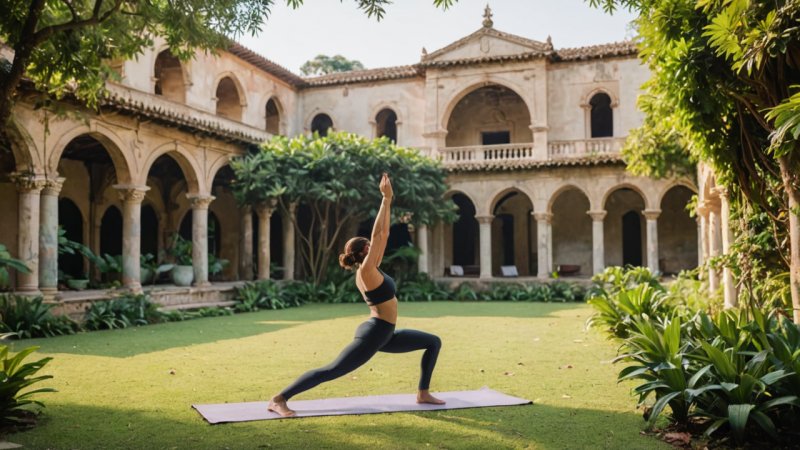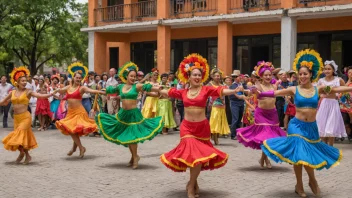Introduction
In today’s fast-paced world, finding a moment of peace and relaxation can be a challenge. Combining wellness with a historical backdrop not only rejuvenates the body but also enriches the mind with cultural experiences. This article will guide you step-by-step in planning a wellness retreat in historical locations, ensuring you make the most of your journey.
Step 1: Choose Your Historical Location
Research various historical sites that are known for their wellness retreats. Consider locations that offer a combination of tranquility and cultural significance.
- Considerations:
- Accessibility
- Historical importance
- Natural surroundings
Popular Locations
- The ancient temples of Greece
- The serene gardens of Kyoto, Japan
- The wellness centers in Tuscany, Italy
- The spiritual sites of India
Step 2: Determine Your Wellness Focus
Define what aspects of wellness you wish to focus on during your retreat.
- Physical Wellness: Activities like yoga, hiking, or spa treatments.
- Mental Wellness: Practices such as meditation, mindfulness, or journaling.
- Spiritual Wellness: Engage in activities that promote self-discovery, such as rituals or workshops.
Step 3: Research Local Wellness Retreats
Once you’ve selected a location and wellness focus, look for local retreats that align with your goals.
- Tips for Research:
- Check online platforms for reviews and ratings.
- Look for retreats that offer personalized programs.
- Contact previous attendees for their experiences.
Step 4: Plan Your Itinerary
Craft a balanced itinerary that allows time for relaxation as well as exploration of the historical site.
Sample Itinerary
- Day 1: Arrival and introductory group wellness session.
- Day 2: Morning yoga followed by a guided historical tour.
- Day 3: Spa day with traditional treatments and evening meditation.
- Day 4: Community service or local cultural engagement.
- Day 5: Reflection and departure.
Step 5: Prepare Physically and Mentally
Prepare yourself for the retreat by incorporating wellness practices into your daily routine leading up to your departure.
- Suggestions:
- Start a daily meditation practice.
- Incorporate light exercise into your schedule.
- Maintain a balanced diet filled with nourishing foods.
Step 6: Pack Wisely
Ensure you pack the right items for your wellness retreat. Consider both the activities you’ll partake in and the historical exploration.
- Essentials:
- Comfortable clothing for physical activities
- Yoga mat and props
- Notebook for reflections
- Sun protection and insect repellent
Step 7: Engage Fully During Your Retreat
Once at the retreat, embrace the experience fully. Participate actively in all activities and take the time to connect with fellow attendees and the environment.
- Tips for Engagement:
- Be open to new experiences.
- Network and share stories with fellow participants.
- Take moments for solitude and reflection.
Summary
Planning a wellness retreat in a historical location is a rewarding endeavor that requires careful consideration and preparation. By choosing the right location, focusing on your wellness goals, conducting thorough research, planning a balanced itinerary, preparing physically and mentally, packing wisely, and fully engaging in the experience, you can create a transformative journey that nourishes both your mind and body. Embrace the healing power of history and wellness, and allow yourself the time to rejuvenate and reflect.






